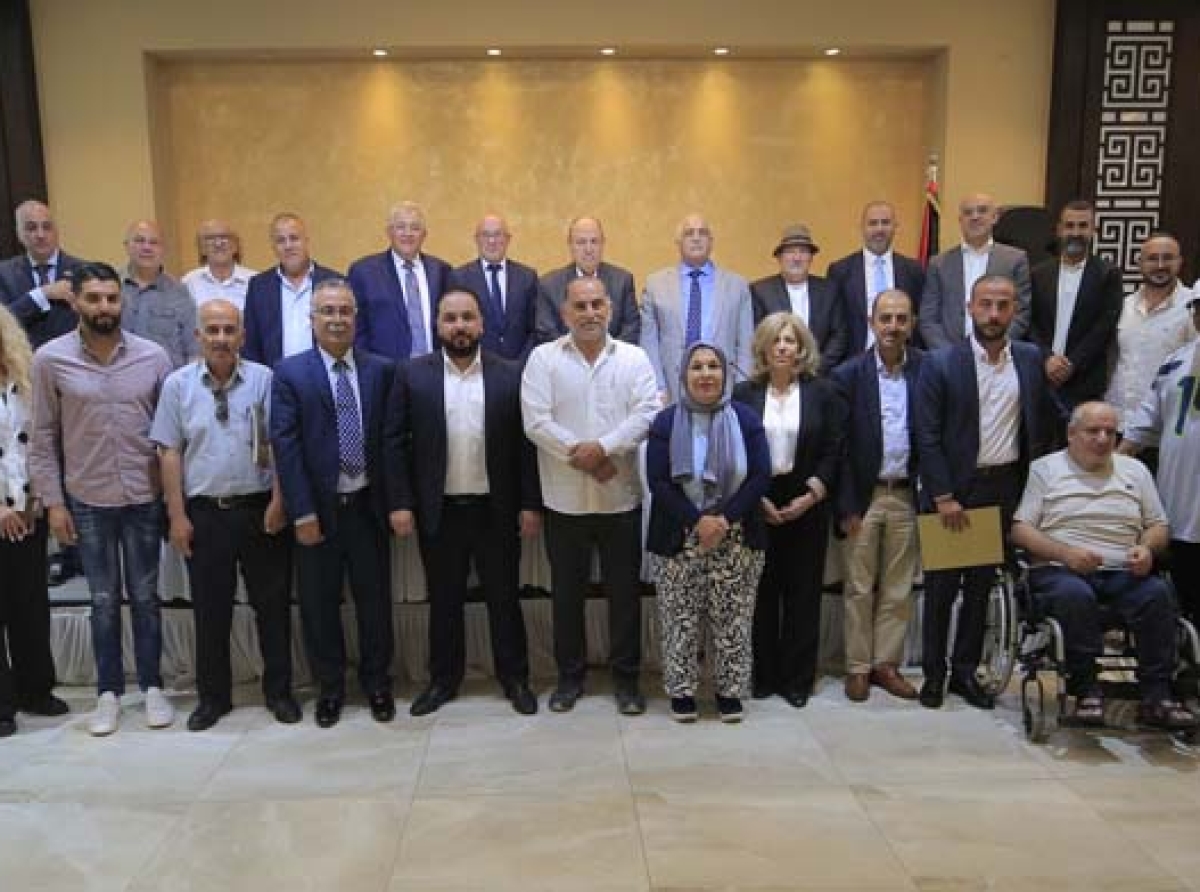Empowering People and Institutions: New Development Projects Strengthening Jerusalem’s Resilience

As part of a strategic initiative aimed at bolstering the resilience of Jerusalemites and preserving the national identity of the occupied city, a new package of development projects titled “Empowering People and Institutions” was officially launched. The announcement was made during a formal ceremony held on Wednesday, July 9, 2025, at the Carmel Hotel in Ramallah, with the participation of several high-profile officials and partner institutions.
The event was inaugurated by Professor Imad Abu Kishek, Chairman of the Board of Qudsona Foundation, who emphasized the importance of channeling financial support toward impactful initiatives that reflect the actual needs of Jerusalem’s communities and institutions, and reinforce their steadfastness.
Dr. Nasser Qatami, Head of the Islamic and Arab Funds Department, noted that these interventions align with a broader strategic vision to support education and economic empowerment as key tools for safeguarding the identity and stability of Jerusalem’s society.
Engineer Adnan Husseini, Head of the Jerusalem Affairs Department in the Palestine Liberation Organization, praised the ongoing cooperation with active local institutions and highlighted the critical role of such projects in strengthening Jerusalem’s social fabric and institutional infrastructure.
Dr. Abdallah Siam, Deputy Governor of Jerusalem, reaffirmed the importance of integrated efforts between official bodies and civil society institutions, particularly in light of the complex and continuous challenges facing the city—challenges that demand sustainable, long-term development responses.
Overview of Funded Programs:
1. University Student Sponsorship Program
A program dedicated to supporting higher education for students from low-income families in Jerusalem by covering part of their university tuition fees, enabling them to complete their academic studies.
The initiative benefits more than 400 students, in partnership with institutions such as Bethlehem University, Palestine Ahliya University, Al-Quds University, Al-Quds Open University, and An-Najah National University.
In addition, the program is integrated with a “Volunteer and Belonging” component designed to foster civic responsibility and community engagement among participating students.
2. Human Development and Institutional Empowerment Program
This program focuses on strengthening Jerusalem’s civil society institutions by enhancing staff capacity, developing institutional frameworks, and supporting youth, cultural, and athletic initiatives.
Nineteen local institutions are involved, including: Ansar Al-Quds Club, the Arab Orthodox Club, Al-Bustan Charitable Association, Al-Asima Sports Club, Beit Safafa Club, Issawiya Club, Burj Al-Luqluq Society, Jabal Al-Mukabber Club, Silwan Club, Al-Eizariya Youth Club, Hilal Al-Quds Club, and others.
The program aims to promote effective institutional governance and deepen community belonging and national identity.
3. Youth Empowerment and Market Revitalization Program. This project includes three primary components:
- Vocational and technical training programs for unemployed youth.
- Interest-free loans to support new entrepreneurial ventures.
- Revitalization of traditional markets, particularly the historic Bazaar Market in Jerusalem’s Old City, to stimulate economic activity and support local businesses.
Implementation is in collaboration with key partners such as the Al-Quds University Business Incubator, YMCA, Waqf Al-Waqfeen, and the Palestinian National Institution for Economic Empowerment.
In conclusion, this initiative reflects a comprehensive development vision led by Qudsona Foundation in partnership with the Al-Quds Empowerment Fund and the Islamic Development Bank, aimed at strengthening the foundations of sustainable development in Jerusalem—by empowering its people, enhancing institutional resilience, and promoting long-term community steadfastness.

